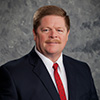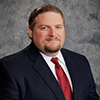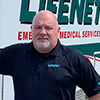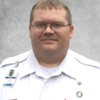ABOUT LIFENET
The LifeNet Story
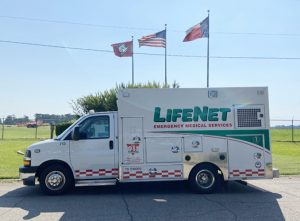 Nearly 30 years ago, two Texarkana hospitals, CHRISTUS St. Michael and Wadley Regional Medical center recognized the strength in working together to serve the out-of-hospital patient care needs of the community. In 1993, the hospitals merged their ground and air ambulance programs into one company and called the new business LifeNet, Inc.
Nearly 30 years ago, two Texarkana hospitals, CHRISTUS St. Michael and Wadley Regional Medical center recognized the strength in working together to serve the out-of-hospital patient care needs of the community. In 1993, the hospitals merged their ground and air ambulance programs into one company and called the new business LifeNet, Inc.
Today, nearly 350,000 people depend on LifeNet for ground ambulance service across Northeast Texas, Southwest Arkansas, and portions of Oklahoma. LifeNet now operates as an independent, non-profit company incorporated in the state of Arkansas and is overseen by a 15-member board of directors.
Started as Air Life by CHRISTUS St. Michael hospital in 1983, the LifeNet Air medical program is the oldest operating helicopter EMS program in the state of Arkansas. Through a partnership with Air Methods, LifeNet has helicopters at both the Texarkana and Hot Springs Regional Airports. The two bases have flown more than 15,000 patients and provide service throughout three states. LifeNet also operates a fixed wing ambulance out of Texarkana.
While LifeNet is known for putting the patient first and providing quality EMS service, there’s more.
LifeNet is also committed to improving education in the communities it serves. Through its generous tuition reimbursement program, LifeNet has helped EMTs become paramedics, paramedics become nurses, and other staff members to become teachers, business professionals, and even attorneys.
Recognizing it is important for the citizens who witness an emergency happen to be trained in how to respond until help arrives, LifeNet also provides free Stroke Awareness Education Programs, Stop the Bleed Training Classes, and 9-1-1 training for all age groups. LifeNet also works to improve sudden cardiac arrest survival rates by offering free Bystander CPR and AED Use classes and an AED Matching Grant program for non-profits.
Like the visionaries who founded LifeNet nearly three decades ago, the company remains committed to strengthening the chain of survival throughout the communities it serves and providing patient-centered quality out-of-hospital care.
CAAS-Accredited
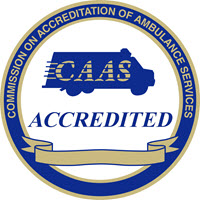 LifeNet is in the one percent of ground ambulance services nationally to be CASS accredited. In 2019, LifeNet earned its accreditation from the Commission on Accreditation of Ambulance Services (CAAS) for the fifth time since first becoming accredited in 2000. To receive accreditation renewal, LifeNet had to meet over 100 standards set by CAAS covering structure, interagency relations, management, finance, community relations and public affairs, human resources, clinical standards, safety and risk management, equipment and facilities, and communication centers.
LifeNet is in the one percent of ground ambulance services nationally to be CASS accredited. In 2019, LifeNet earned its accreditation from the Commission on Accreditation of Ambulance Services (CAAS) for the fifth time since first becoming accredited in 2000. To receive accreditation renewal, LifeNet had to meet over 100 standards set by CAAS covering structure, interagency relations, management, finance, community relations and public affairs, human resources, clinical standards, safety and risk management, equipment and facilities, and communication centers.
After reviewing a comprehensive application that covered LifeNet’s policies, procedures, and protocols, CAAS inspectors visited LifeNet’s three divisions in November of 2018 and conducted a detailed two-day inspection. The visit included checking facilities, reviewing procedures and protocols, and interviewing personnel. This was the fifth time since 2000 that inspectors have done in-depth, on-site reviews of LifeNet Inc.. The next review will happen in 2021.
While accreditation is not required to run a ground ambulance service, LifeNet is committed to excellence and putting the patient first. By undergoing recertification every three years, LifeNet ensures the company is providing the best EMS service possible in each service area.
Ground Service Areas
Garland County, Arkansas
Service Area Population: 97,173Hot Spring County, Arkansas
Service Area Population: 33,500Miller County, Arkansas
Service Area Population: 43,402Denison, Texas
Service Area Population: 24,380
Garland County, Arkansas
Service Area Population: 97,173Hot Spring County, Arkansas
Service Area Population: 33,500Miller County, Arkansas
Service Area Population: 43,402Denison, Texas
Service Area Population: 24,380
LifeNet Air Bases
- Texarkana Regional Airport
- LifeNet Air 1
Bell 407 Helicopter
- LifeNet Fixed Wing
Piper Cheyenne 2
- LifeNet Air 1
- Hot Springs Regional Airport
- LifeNet Air 2
Bell 407 GX Helicopter
- LifeNet Air 2
BOARD OF DIRECTORS
LIFENET LEADERSHIP
CORPORATE
TEXARKANA DIVISION
HOT SPRINGS DIVISION
DENISON, TEXAS
STILLWATER DIVISION
LIFENET FAQs
In most cases, LifeNet operates under agreements awarded by local government. Although each agreement varies, in general, there are parts of each agreement that detail the benefits of utilizing LifeNet. It is in these sections that the benefits to a community are outlined and in order to maintain these agreements, LifeNet must meet or exceed these parts:
- Possess a current license from the appropriate State’s EMS oversight agency to provide emergency medical services (EMS), both transport and treatment, at the advanced life support (ALS) level. This insures that the public will not have to choose between providers of varying degrees of clinical sophistication. The consequence of their error in evaluating the level of their need can be the selection of the wrong type of care, which is extremely risky in emergency situation.
- Provide emergency medical services at an Advanced Life Support level throughout the service area, twenty-four (24) hours per day, seven days per week. This insures that public will receive emergency ambulance service regardless of their ability to pay for the service. This also guarantees the public that the closest ambulance will be sent to every emergency and it will arrive in a clinically significant time.
- Comply with all rules and regulations governing EMS as promulgated by the applicable State’s oversight agency. This guarantees the public that the service remains in compliance with all laws and rules applicable.
Competition and the threat of competition are fundamental concepts of capitalism. Few Americans question that retail competition contributes to lower prices, improved quality, and greater diversity in the delivery of most goods and services.
If retail competition lowers prices, raises quality, and results in greater diversity of goods and services in other industries, why isn’t retail competition the most efficient form of competition for ambulance services? The conditions necessary for an effective retail transaction do not exist in most ambulance market segments (both emergency and non-emergency). For a retail transaction to be effective, the following basic economic features must apply:
- There must be a choice of suppliers. The public is never in a position to ‘shop’ when an emergency ambulance is needed even if there were a choice of emergency ambulance suppliers. The chooser must have a stake in quality. Patients clearly have a stake in the quality of emergency ambulance services they receive, but are poor judges of quality. The chooser must have a stake in cost.Many patients have no health insurance or ability to pay for emergency ambulance services, and therefore have no stake in the cost of service. For those patients with health insurance, most policies cover ambulance service and almost all patients believe their insurance will cover the cost of services.The chooser must have a chance to compare. In most situations in which the public calls for an emergency ambulance, there is insufficient time, for obvious reasons, to comparison shop.
- The chooser must be qualified to compare. In markets where patients can choose between providers of varying degrees of clinical sophistication (e.g, a single ALS-Paramedic level emergency provider, and a variety of BLS-EMT level non-emergency providers) patients frequently select the wrong service. The consequence of their error in evaluating the level of their need can be the selection of the wrong type of care, which is extremely risky in emergency situations.
- The chooser must buy often enough to become a skillful buyer. Repeated experience in purchasing a commodity or service is necessary in becoming an informed consumer. Most people will order an emergency ambulance only twice in their lifetime, which does not constitute enough frequency to become proficient and skilled. In comparison, many people buy five or more houses in their life,each time relying on the expertise of a real estate agent, escrow company, appraisal firms, attorneys, and advice from family and friends. Frequency in buying increases skills.
None at all. Though we operate very much like a public service, when it comes to tax subsidies, we receive nothing. We are a fee for service business.
Rates are governed by contractual agreement and are approved by the governmental agency or public entity contracting with LifeNet. Among the agencies approving rates for their jurisdictions are the following:
- City of Hot Springs, Arkansas
- City of Texarkana, Arkansas
- City of Texarkana, Texas
- Bowie County Commissioner’s Court
- Cass County Commissioner’s Court
- Western Payne County Ambulance Trust Authority
The company’s goal is to deliver the highest possible patient care while respecting the patient’s rights and desires as an individual. First, the patient is to be taken to the hospital of patient request, if medically appropriate. If the patient is unable to communicate, the patient is to be taken to the hospital of immediate family request.
Second, special patient needs may dictate transport to a hospital that may not be the patient’s choice, but is the most appropriate facility (i.e., burn patients, multiple system trauma, OB).Third, if a patient adamantly refuses to be transported to the most appropriate medical facility,the hospital of patient request is contacted and On-Line Medical Control will be asked to accept the patient.
Employees are encouraged not to tell patients to utilize one facility over another.




